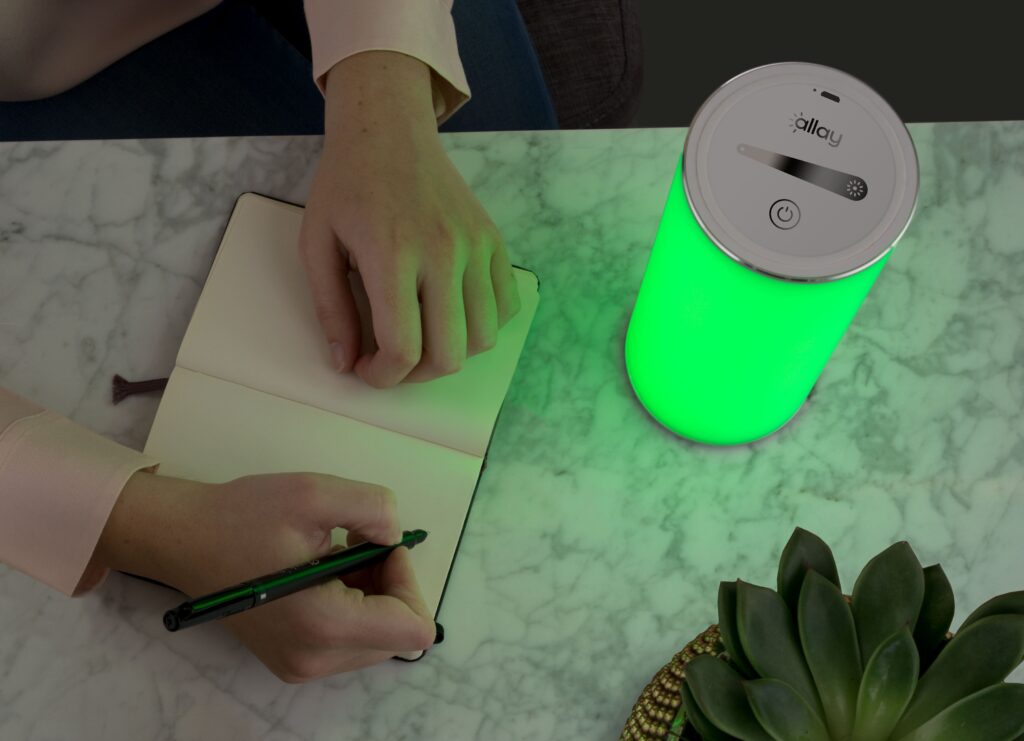Managing screen time in our hyper-connected world has become part of our daily lives and that’s why a digital detox is essential for mental clarity. From smartphones to laptops, tablets to smart TVs, we’re constantly bombarded with digital stimuli. While technology has undoubtedly improved so many aspects of our lives, excessive screen time can take a toll on our mental health and overall well-being.

This is where the concept of a digital detox comes in – a period of time where we refrain from using our tech gadgets, smartphones, or computers.
Let’s break down five compelling reasons why you should consider a digital detox for improved mental clarity and how to effectively manage your screen time.
1. Reduce Stress and Anxiety
One of the greatest benefits of a digital detox is its potential to significantly reduce stress and anxiety levels. Constant connectivity often leads to an “always-on” mentality, where we feel pressured to respond to messages, emails, and notifications immediately. This perpetual state of alertness can trigger the release of stress hormones like cortisol, leading to chronic stress and anxiety.
A study from the Journal of Social and Clinical Psychology found a strong link between social media use and increased feelings of depression and loneliness. By taking a break from digital devices, you give your mind a chance to reset and relax. During a digital detox, you may find yourself feeling more present and less anxious about what’s happening online.
Tip: Start small by designating certain hours of the day as “screen-free” time, gradually increasing the duration as you become more comfortable.
2. Improve Sleep Quality
The blue light emitted by digital screens can interfere with our natural sleep-wake cycle, also known as the circadian rhythm. Exposure to blue light in the evening suppresses the production of melatonin, the hormone responsible for regulating sleep. This can lead to difficulty falling asleep, poor sleep quality, and daytime fatigue. Check out this previous post on Green Light Therapy and a product I cannot live without.
A digital detox, especially in the hours leading up to bedtime, can significantly improve your sleep quality. The National Sleep Foundation recommends avoiding screens for at least 30 minutes before bed to promote better sleep.
Tip: Implement a “digital curfew” by turning off all devices an hour before bedtime. Replace screen time with relaxing activities like reading a physical book or practicing gentle yoga.
3. Enhance Real-Life Relationships
While digital communication has made it easier to stay in touch with people across distances, it can sometimes come at the cost of our in-person relationships. Excessive screen time can lead to a phenomenon known as “phubbing” – the habit of snubbing someone in favor of your mobile phone.
A digital detox encourages you to engage more fully with the people around you. Without the constant distraction of notifications and updates, you can have more meaningful conversations and strengthen your relationships. This face-to-face interaction is crucial for building empathy, understanding non-verbal cues, and fostering deeper connections. Check out my free mindful communication training for help with this.
Tip: Designate certain social gatherings or family meals as “device-free” zones to promote more engaged interactions.
4. Boost Productivity and Creativity
Constant digital stimulation can fragment our attention and reduce our ability to focus on tasks. A study from the University of California, Irvine, found that it takes an average of 23 minutes to fully regain focus after being interrupted. In a world of push notifications and instant messages, these interruptions can significantly impact our productivity.
A digital detox allows your brain to reset and can lead to improved concentration and productivity. Moreover, periods of boredom–which we often try to avoid by reaching for our phones–can actually boost creativity. When your mind isn’t constantly occupied with digital input, it has the space to wander, make new connections, and generate original ideas.
Tip: Use apps that block distracting websites or limit your time on certain applications to help you focus during work hours.

5. Rediscover Hobbies and Improve Physical Health
Many of us turn to our devices for entertainment or to fill idle moments. However, this can come at the expense of other activities that are beneficial for our mental and physical health. A digital detox provides an opportunity to rediscover old hobbies or explore new interests that don’t involve screens.
Physical activity, in particular, often takes a back seat to screen time. The World Health Organization has identified physical inactivity, which is exacerbated by excessive screen time, as the fourth leading risk factor for global mortality. By reducing screen time, you create space for more physical activity, whether it’s going for a walk, practicing a sport, or trying a new fitness class.
Tip: Make a list of screen-free activities you enjoy or would like to try. When you feel the urge to reach for your device, choose an activity from this list instead.
Implementing a Digital Detox
While the idea of a digital detox might seem daunting, it doesn’t have to be an all-or-nothing approach. Here are some strategies to help you get started:
1. Start Small: Begin with short periods of digital abstinence, like an hour each day or one day a week.
2. Set Clear Boundaries: Establish rules for your detox, such as no phones during meals or no social media after 8 PM.
3. Create Phone-Free Zones: Designate certain areas in your home, like the bedroom or dining room, as device-free.
4. Use Technology to Limit Technology: Ironically, there are apps designed to help you monitor and limit your screen time.
5. Practice Mindfulness: When you do use your devices, do so with intention and awareness.
Remember, the goal of a digital detox isn’t to completely eliminate technology from your life, but to create a healthier relationship with it. By managing your screen time more effectively, you can reap the benefits of the digital world while maintaining your mental clarity and overall well-being.
As you embark on your digital detox journey, be patient with yourself. Like any habit change, it takes time to adjust. But with persistence, you’ll likely find that the mental clarity and improved quality of life are well worth the effort. Your mind–and those around you–will thank you for it.

And, for anyone looking to bring more balance and inspiration into their daily life, the Blossom Your Awesome Podcast offers thoughtful conversations and practical insights to support your well-being.
If you want to read more, check out these posts:
Comments +
5 Reasons to Do a Digital Detox for Mental Clarity
Mental Health, Mental Wellness, Self-Help